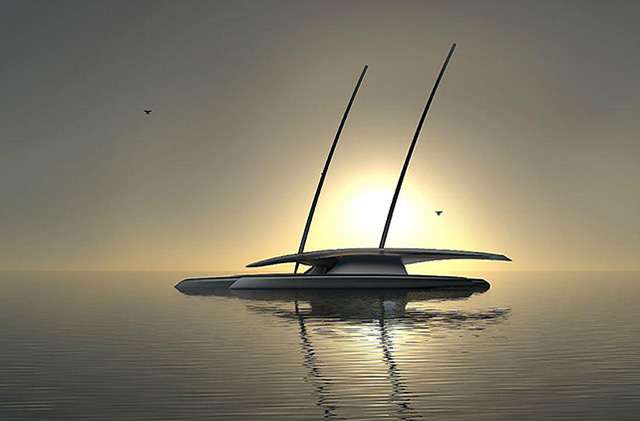Apes Appear To Have Potential For Human Speech: Study
New research suggests that apes have the ability to perform behaviors that require vocal and breathing control and may have the ability to develop speech.

You could call it Mayflower 2.0.
If all goes as planned, this high-tech, solar-and-wind-powered ship will follow the same route its pioneering namesake took, ‘from Plymouth to Plymouth,' exactly 400 years earlier.
But instead of Pilgrims—or passengers of any kind— a small fleet of passenger drones will be the ones "steering" the ship in the year 2020.
The vessel, nicknamed MARS—the Mayflower Autonomous Research Ship—is a joint venture of engineers at three UK entities: Plymouth University, autonomous-craft specialists MSubs, and yacht designers Shuttleworth Design.
If they succeed—and if nobody beats them to it—MARS will become the first surface vessel to complete an unmanned transatlantic voyage.
Solar Panels in the Shape of a Heart Will Show Love for the Planet
"MARS will operate as a research platform, conducting numerous scientific experiments during the course of its voyage," explained Professor Kevin Jones, the University's Executive Dean of the Faculty of Science and Engineering, as Plymouth announced the Mayflower venture.
"It will be a test bed for new navigation software and alternative forms of power, incorporating huge advancements in solar, wave and sail technology."
Still in its design phase (photos are artist's renderings of some early ideas), the MARS craft is expected to take 2½ years to build and another year to test—with no word yet on how long the designers think the actual voyage will take.
Unmanned vehicles have crossed the ocean before– in the air and underwater– but never on the waves.
(READ more at Popular Science)
Sail This Good News Across The Ocean … Share Below
Be the first to comment